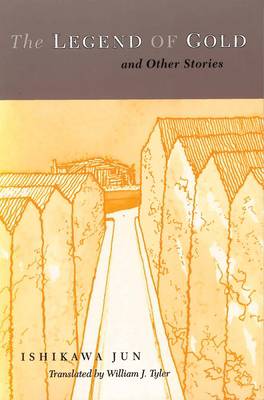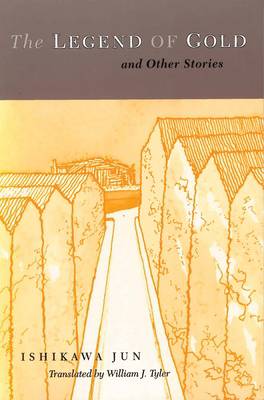
- Retrait gratuit dans votre magasin Club
- 7.000.000 titres dans notre catalogue
- Payer en toute sécurité
- Toujours un magasin près de chez vous
- Retrait gratuit dans votre magasin Club
- 7.000.000 titres dans notre catalogue
- Payer en toute sécurité
- Toujours un magasin près de chez vous
Description
The four stories and novella translated in this volume represent the best short fiction by Ishikawa Jun (1899-1987), one of the most important modernist writers to appear on the Japanese literary stage during the years before and after World War II. Throughout his career, Ishikawa resisted the tide of popular opinion to address issues of political and artistic significance and thereby paved the way for a generation of Japanese internationalists and experimentalists, including Abe Kobo and Oe Kenzaburo. Highly acclaimed and respected in Japan, Ishikawa remains little known in the West-in part because of the tendency of Western critics and readers of Japanese literature to focus on writers concerned with aesthetic issues. Combining a strong interest in politics with a brilliant use of modernist techniques, Ishikawa's work defies easy categorization.
Banned in 1938, "Mars' Song" has been called the finest example of anti-war fiction written during Japan's march to war in China and the Pacific. In it Ishikawa denounces the chorus of jingoism that swept Japan, and via a metafictional tale within a tale, he warns against the suicidal destruction to which complicity in warmongering will lead. The allegorical "Moon Gems," written in the spring of 1945, further explores the tenuous position of the writer moving against the current in a country not only still at war but very near defeat. In "The Legend of Gold" and "The Jesus of the Ruins," both from 1946, Japan has been reduced to a charred wasteland yet Ishikawa envisions destruction as fertile ground for rebirth and resurrection. Finally, the semi-surrealistic novella The Raptor plumbs the meanings and possibilities of peace in the post-Occupation era. William Tyler's eminently readable translations are faithfully expressive of stylistic and tonal nuances in the original works. In a perceptive introduction and the critical essays that follow, Tyler emphasizes Ishikawa's importance as an anti-establishment--even "resistance"--writer and argues that the writer's political iconoclasm goes hand-in-hand with the modanizumu of his literary experimentation. The Legend of Gold will be of tremendous importance in enlarging a Western understanding of the development of the writer's role as social critic and the evolution of the modernist movement in postwar Japan.Spécifications
Parties prenantes
- Auteur(s) :
- Editeur:
Contenu
- Nombre de pages :
- 320
- Langue:
- Anglais
- Collection :
Caractéristiques
- EAN:
- 9780824820701
- Date de parution :
- 01-11-98
- Format:
- Livre broché
- Format numérique:
- Trade paperback (VS)
- Dimensions :
- 152 mm x 231 mm
- Poids :
- 453 g







